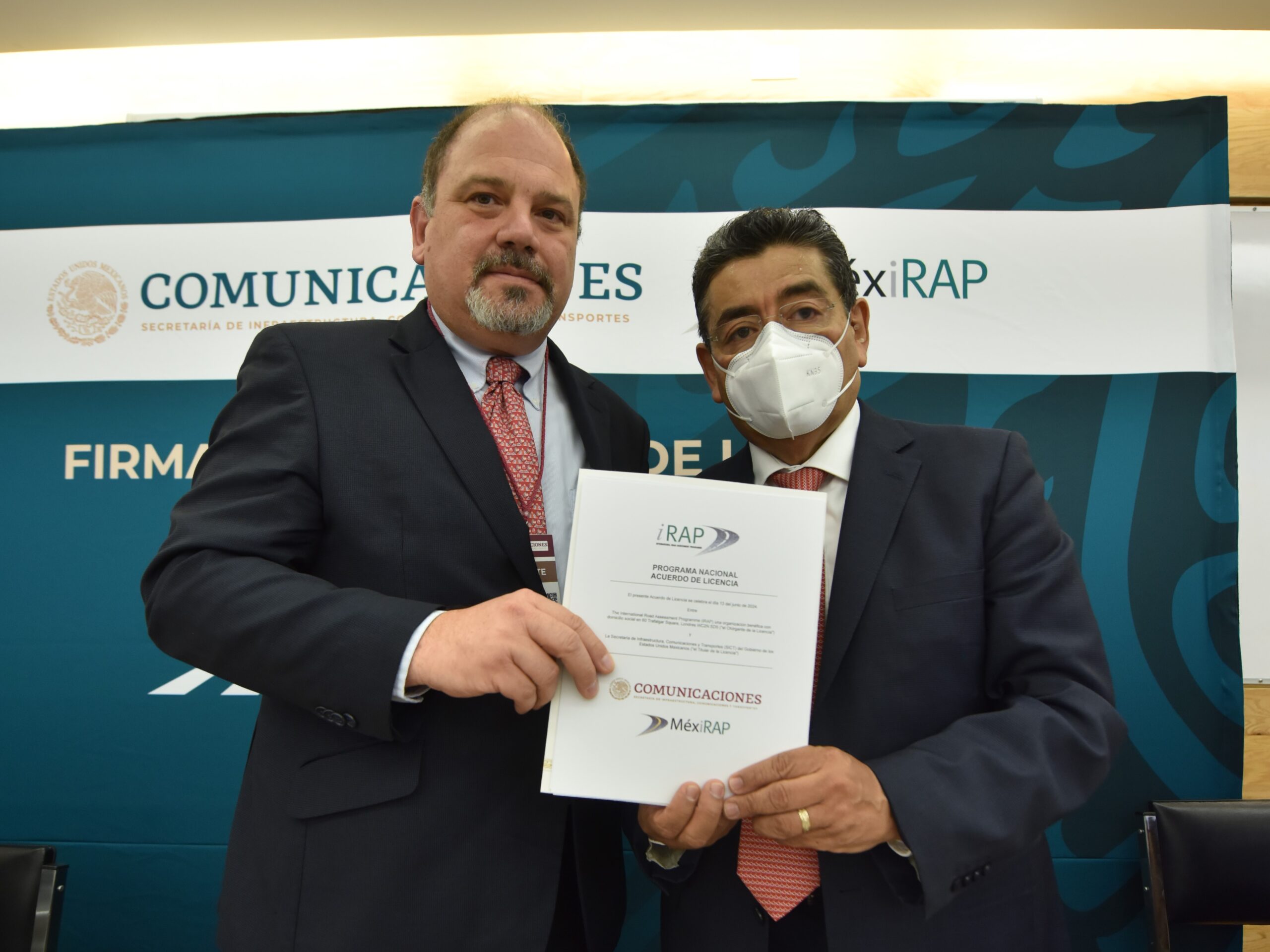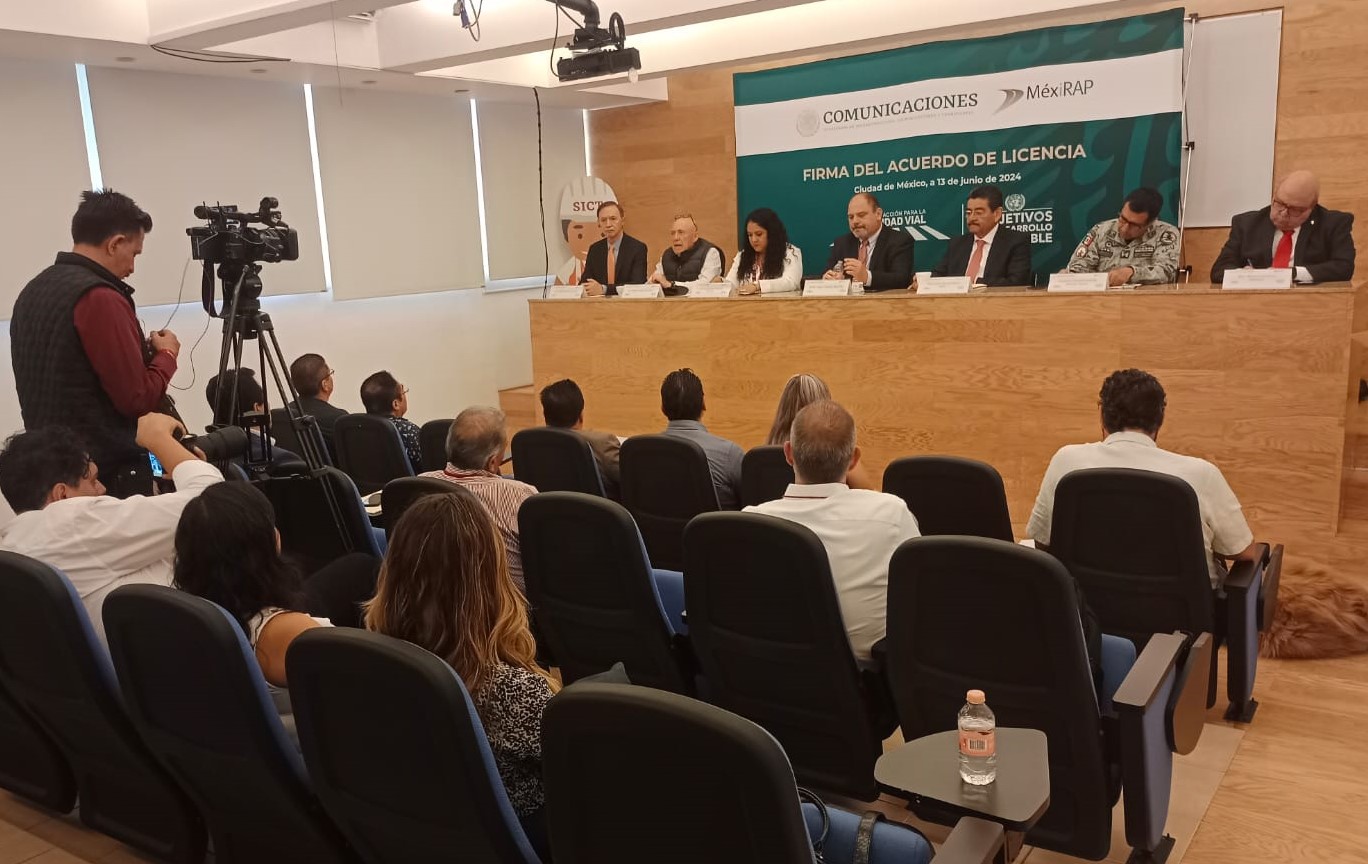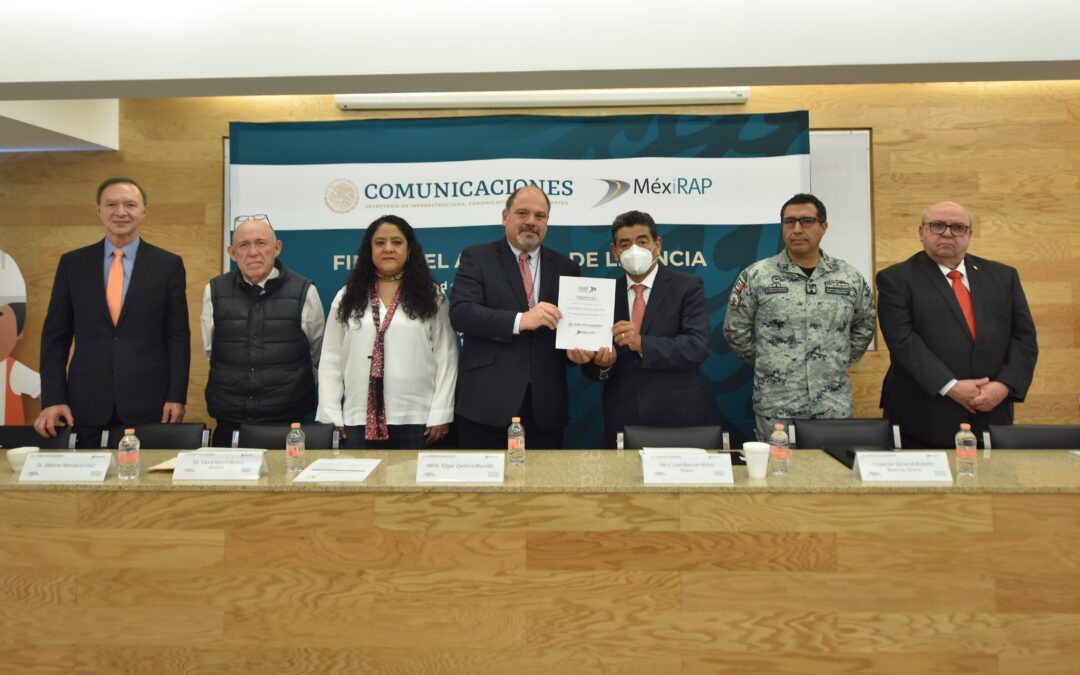The Government of Mexico, through the Ministry of Infrastructure, Communications and Transport (SICT) and the International Road Assessment Programme (iRAP) announced today the launch of MexiRAP to reduce high-risk highways in the country and reduce the 16,000 road deaths that occur annually.
Vinicio Andrés Serment Guerrero, Director General of Technical Services, Undersecretariat of Infrastructure stated, “This exciting development reflects the Government’s priority to strengthen road safety on federal highways and all highway assets to save lives and reduce the burden of injuries due to road traffic crashes.
“Today’s launch is the culmination of the Memorandum of Understanding between SICT and iRAP signed in November last year to promote programmes and projects aimed at decreasing high-risk roads in the country,” he stated.
The Mexico Road Assessment Programme (MexiRAP) will be hosted by the SICT and bring together local experts, using local research and resources, with the support of the global iRAP Programme, which includes partners in more than 125 countries.
iRAP Global Programme Director Greg Smith said, “MexiRAP will use iRAP’s Star Rating methodology and investment planning tools, which based on scientific research and evidence, provide an objective rating of the level of road safety ‘built-in’ to the road for vehicle occupants, motorcyclists, cyclists and pedestrians. Five-star roads are the safest, while one-star roads are the least safe.
“The programme will bring together government agencies, mobility partners, investment, research and NGOs to gain knowledge and drive action to eliminate unsafe 1-star and 2-star roads and ensure that new roads are designed and built to the global standard of 3-star or better for all users,” Mr Smith said.
The development of MexiRAP builds on the more than 140,000 km of partner-led iRAP assessments that have already been completed in the country and have influenced the safety of US$250 million of road infrastructure investment.
MexiRAP will build on this life-saving impact and further develop local capacity backed by evidence-based policy, performance monitoring and investment tools to help governments and road safety stakeholders measure, manage and optimize safety, supported by iRAP’s global tools, training and connection to national and global experts.
MexiRAP’s launch complements iRAP’s partnerships with the Aleatica Foundation for Road Safety, and Instituto Mexicano del Transporte (IMT), one of iRAP’s 11 Centres of Excellence that help shape the evidence-based global road infrastructure safety standard and tools.


– ends –
Notes to editor
Thousands of deaths and serious injuries are already being prevented on Mexico’s roads thanks to iRAP partner impact. Across 75 existing iRAP projects, more than 8,500 lives and serious injuries are being saved annually as a result of infrastructure upgrades, according to research by Johns Hopkins University published in respected journal PLOS One. The study verifies that road safety infrastructure changes and safer speeds informed by the iRAP Methodology and tools have prevented almost 700,000 fatalities and serious injuries in 74 countries since 2016. Read the study here.
Media contacts:
For iRAP:
Edgar Zamora, iRAP Safer Journeys Lead for Latin America and the Caribbean
Email: edgar.zamora@irap.org; Mobile: +506 8365-8643
For SICT:
Vinicio Andrés Serment Guerrero, Director General of Technical Services, Undersecretariat of Infrastructure
Email: vserment@sict.gob.mx; Mobile: +55 81 1029 3517
About SICT
The Ministry of Infrastructure, Communications and Transportation promotes safe, efficient and competitive transportation and communications systems in Mexico by strengthening the legal framework, defining public policies and designing strategies that contribute to the sustained growth of the economy and the balanced social development of the country, expanding the coverage and accessibility of services, achieving the integration of Mexicans and respecting the environment.
https://www.gob.mx/sct
About iRAP
iRAP and its partners work with the United Nations, the World Health Organization, governments, development banks, mobility clubs, industry, road safety NGOs and research organizations to provide evidence-based tools, training and support to help them make their roads safe. The iRAP road safety star rating methodology is free to use and provides an objective measure of the level of “built-in” road safety for vehicle occupants, motorcyclists, cyclists, and pedestrians. A 1-star road is the least safe and a 5-star road is the safest. iRAP works with its partners to: inspect high-risk roads and develop Star Ratings, Risk Maps and Safer Roads Investment Plans; provide training, tools and support to develop and maintain national, regional and local capacity; and track road safety outcomes so that funding agencies can assess the economic and life-saving benefits of their investments. iRAP and its partners have star-rated 1.8 million kilometers of roads and layouts, and 1,356 schools, influencing the safety of $101 billion of infrastructure investment. 1.8 million kilometers have been mapped and more than 69,000 people have been trained worldwide. According to recent research led by Johns Hopkins University, published in the respected journal PLOS One, road projects funded by governments, development banks and private sector road operators around the world using iRAP methodology and tools have prevented nearly 700,000 deaths and serious injuries in 74 countries between 2016 and 2024. iRAP’s Safety Insights Explorer sheds light on the human and economic impact of road crashes, how safe our roads are, and the Business Case for Safer Roads in countries and globally.
https://www.irap.org
Images credit: SICT

















